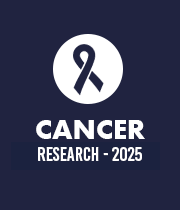Title : Bridging survivorship with acceptance and uptake of novelbreast cancer therapies: A neglected paradigm
Abstract:
Introduction: Worldwide, breast cancer comprises one third of all cancers affecting women. Disparities are exhibited by this condition in tumor biology and clinical behavior. No single cure has been identified as a result of these characteristics. Scientists all around the globe, have continued to work tirelessly in a quest to ameliorate this global health situation. However, the eluding breakthrough as per now, has ignited a myriad of scientific advances in breast cancer care modalities. The resultant effect is the realization of having about one third of all those women affected by breast cancer attaining long term survival of over 5 to 10 years. Survivors have trodden that arduous thorny path through cancer treatment better than any clinician attending to them. The hard earned coping measures remain an underutilized resource in the care of new and unusually young victims of cancer of the breast worldwide. These survivors harbor in their bodies that potential and attribute which is lacking in any just knowledgeable oncologist, yet this could be turned beneficial to a recently diagnosed person with cancer in need of prompt care. Despite the favorable outcome realized from these novel modalities against cancer, in terms of improved survivorship with better quality of life, their uptake and acceptability is still challengingly low. Hence the goal of this study was to evaluate the role of survivors’ incorporation and involvement in attaining acceptance and uptake of anti-breast cancer care at a sub Saharan teaching hospital facility.
Methods/Results: The study site was carried out the Breast and Endocrine unit as review of data for the MicroRNAs study. This was a nested study that explored and interrogated patient acceptance and uptake for the current recommended breast cancer care. We reviewed prospectively collected interview data of 300 women participants with histologically confirmed early onset breast cancer who were eligible in a study on the role of MicroRNAs in breast Cancer bio-pathologic characterization. The study was done at the Breast and Endocrine unit of Mulago National hospital, Kampala. Ethical clearance and administrative clearance were secured from Makerere university School of medicine research and ethics Committee (SOMREC) and Mulago hospital IRB. The results were subjected to tailored analyses involving descriptive statistics, frequencies, and the thematic qualitative analyses for meaningful deductions. The majority of the participants (200/300) were willing to accept take up novel anti-cancer prescriptions. Out of these, 40 participants readily accepted while 60 reservedly accepted after the clinician’s counselling, however the majority,100 participants did accept unreservedly after sharing with the survivors working with us in the breast clinic. In addition, out of the those remaining 100 participants who had originally refused, when they were approached by the survivors, 50 out of the 100 participants, accepted to start the treatment expedition. However, the rest (50 participants) refused to take up any form of surgery related anticancer treatment modality and opted for spiritual and herbal concoctions at their disposal
Conclusion: Despite breast cancer being common among this sub Saharan African region and more especially abnormally affecting a fairly young woman population, the spontaneous uptake of recommended novel anticancer treatment modalities is still very low. It is markedly significant that when the survivorship bridged paradigm is incorporated and advocated for within cancer care, these efforts yield tremendous outcomes in terms of non-reserved acceptance and uptake for cancer.
Audience Take Away Notes:
- Breast cancer is such a huge bottleneck to the realization of the 2030 sustainable development goals involving women health worldwide but its more pronounced in sub Saharan Africa.
- Discrepancies in acceptance and uptake of cancer care requires a survivor based approach to enable for the best tailored and informed treatment package.
- Advocacy is needed in form of research trial to critique and inform the various paradigms practiced for seeking consent while prescribing the modern treatment options at the global disposal.
- The utility of this study is to empower and advocate for the involvement of cancer survivors in the support and care of all cancers affecting humanity globally.
To also bring to the attention of funding agencies a way of improving data on cancer care with a worldwide generalized efficacy and effectiveness. A global approach to inform the scientific fraternity is only achievable when such studies are under taken from various parts of the globe. Collaborations with sub Saharan Scientists should always be initiated and nurtured at all fora of Cancer conferences commencing with this very one if we are to fight cancer successfully and globally through accessible and cost effective paradigms.


